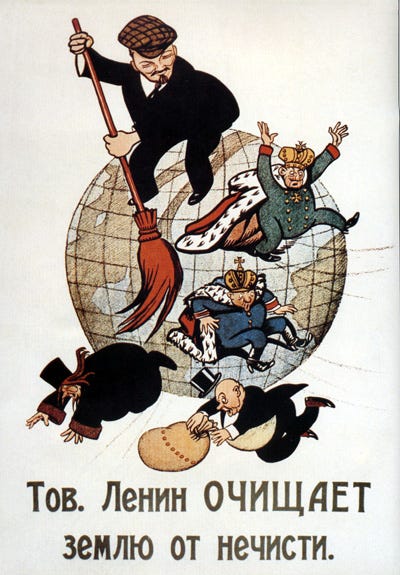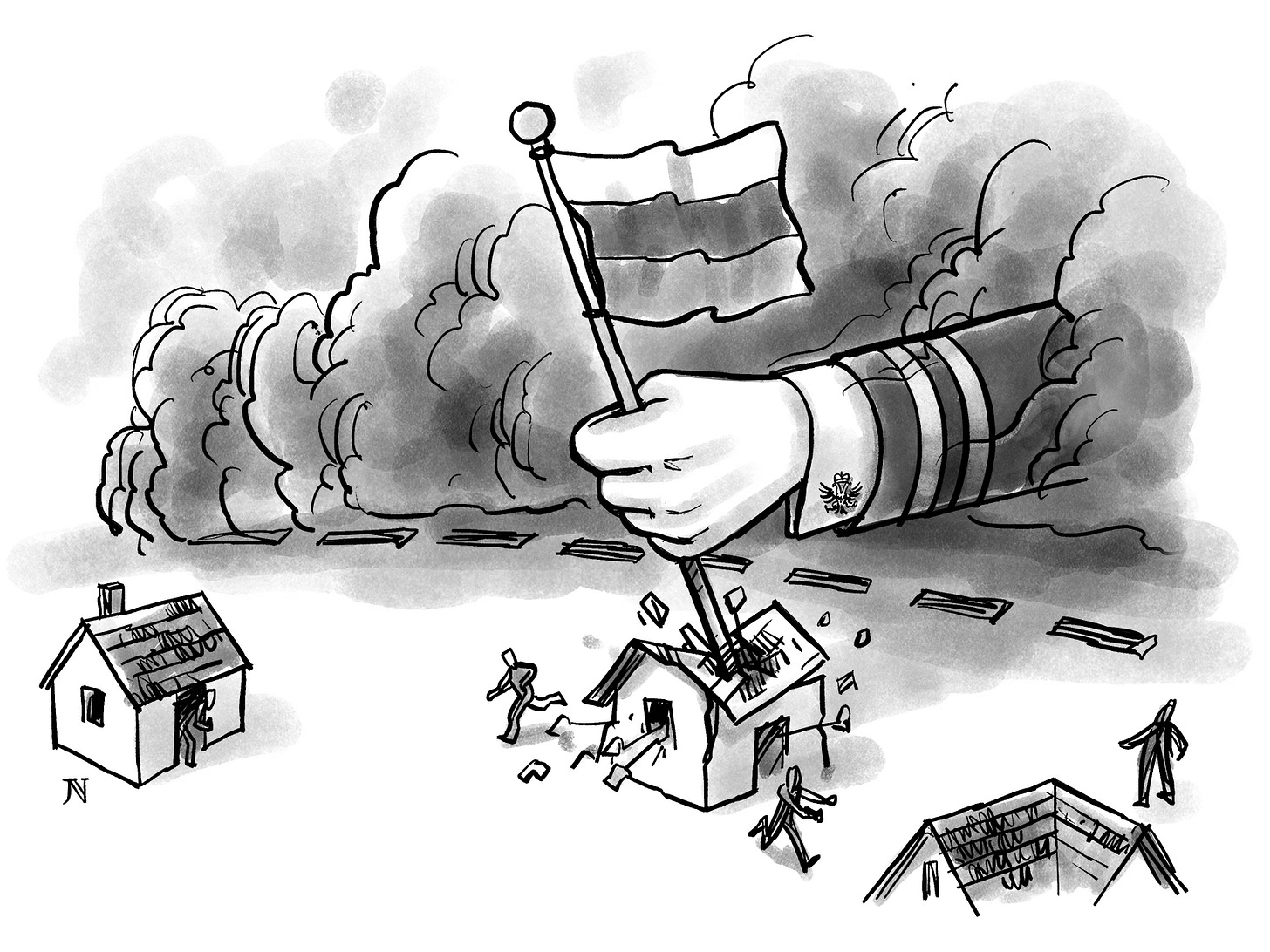Early on in the Soviet reign, when the upstart revolutionary power struck fear in the hearts of capitalists the world over, Vladimir Lenin would goad the West with his who overtakes whom? bit (kto kovo) — basically, the taunt of we’re catching up on you!
It’s a school yard version of the future belongs to us and not you! You could also call it the “time is on our side” argument (Yes, it is!).
There are two ways to sell this taunt: 1) I’m actually pulling ahead, and 2) You’re totally falling apart.
Right now there is a sort of rock, paper, scissors three-way going on among the US, China, and Russia, with each spotting another in one form or another (pulling ahead or falling behind).
Putin’s Moscow is clearly pushing the logic that the US is suffering a self-destructive decline, capped off by Trump’s return to power. With our shift to rule by oligarchs unfolding, such taunting truly stings.
Then there are all manner of China hawks (to include plenty within the incoming administration) who believe it’s China that’s on the ropes and ready to be toppled, either by tariffs in a trade war or some imagined decisive military showdown over Taiwan.
The problem with this Ronny Reagan-like logic? China today is not the economy of Brezhnev’s Soviet Union.
Then there are those of us who judge Putin’s “great accomplishment” to be nothing more (or less) than locking-in Russia as China’s economic vassal — a sort of gigantic North Korea to be looted of its natural resources.
Russia beats America beats China beats Russia.
There are, of course, countervailing arguments on each dyad. They’re just not as strong/popular right now..
The MAGA crowd likes and admires Putin’s regime for its open embrace of Slavic Orthodox nationalism (their version of America’s White Christian nationalism). They’ll be happy to deliver “sacred” Ukraine back to Mother Russia, just like they’ll be happy to see Israel eliminate and annex both Gaza and the West Bank. It’ll all just feel so Biblically right!
Then there are plenty of us analysts who see China playing go the world over (but particularly across the Global South) while the US fixates on a single hand of poker (Taiwan) — thus Beijing winning this century while Washington guards against losing one of the last great vestiges of the Cold War out there (our sacred duty to prevent WWIII by manning 800 or so military facilities the world over).
Finally, of course, there are the strategic fraidy cats who spot some 10-foot-tall behemoth consisting of Iran, North Korea, Russia, and China that is poised to Mackinder the world by grasping firm control of the Heartland of Eurasia, then its Rimlands, and thus own the entirety of the World Island! — a wonderfully blood-and-soil view of 21st century security right as digital content comes to dominate global trade value and AI is poised to remake … just about everything!
You know where I stand.
If Russia has to invade its neighbors to stop them from defecting to Europe’s EU and NATO structures, then that’s not a sign of its strength but of its superpower brand weakness (and, conversely, Europe’s brand strength). When your erstwhile allies are willing to take a military beating just to keep that door open, that’s not indicative of your strength.
Instead, I see Russia still coming apart as an empire, stretching back to 1989 and looking shakier as a political identity and entity by the day. I mean, what is the Russia Federation but a vast clustering of nationalities held uncomfortably subordinate to the Slavic Russians.
In short, there is no love lost there. Indeed, there is barely a national identity to be found.
And with climate change placing a big fat target on its back (all that warming land offering a place of retreat from Middle Earth’s steaming hot mess), Russia, as I noted in America’s New Map, is “more prey than predator so long as Putin rules.”
And, once he’s gone? Then we’re looking at one sick man of Eurasia, ready to be carved up by up-and-still-coming powers all along its vast borders.
We’ve seen that movie and know how it unfolds.
Keep reading with a 7-day free trial
Subscribe to Thomas P.M. Barnett’s Global Throughlines to keep reading this post and get 7 days of free access to the full post archives.







